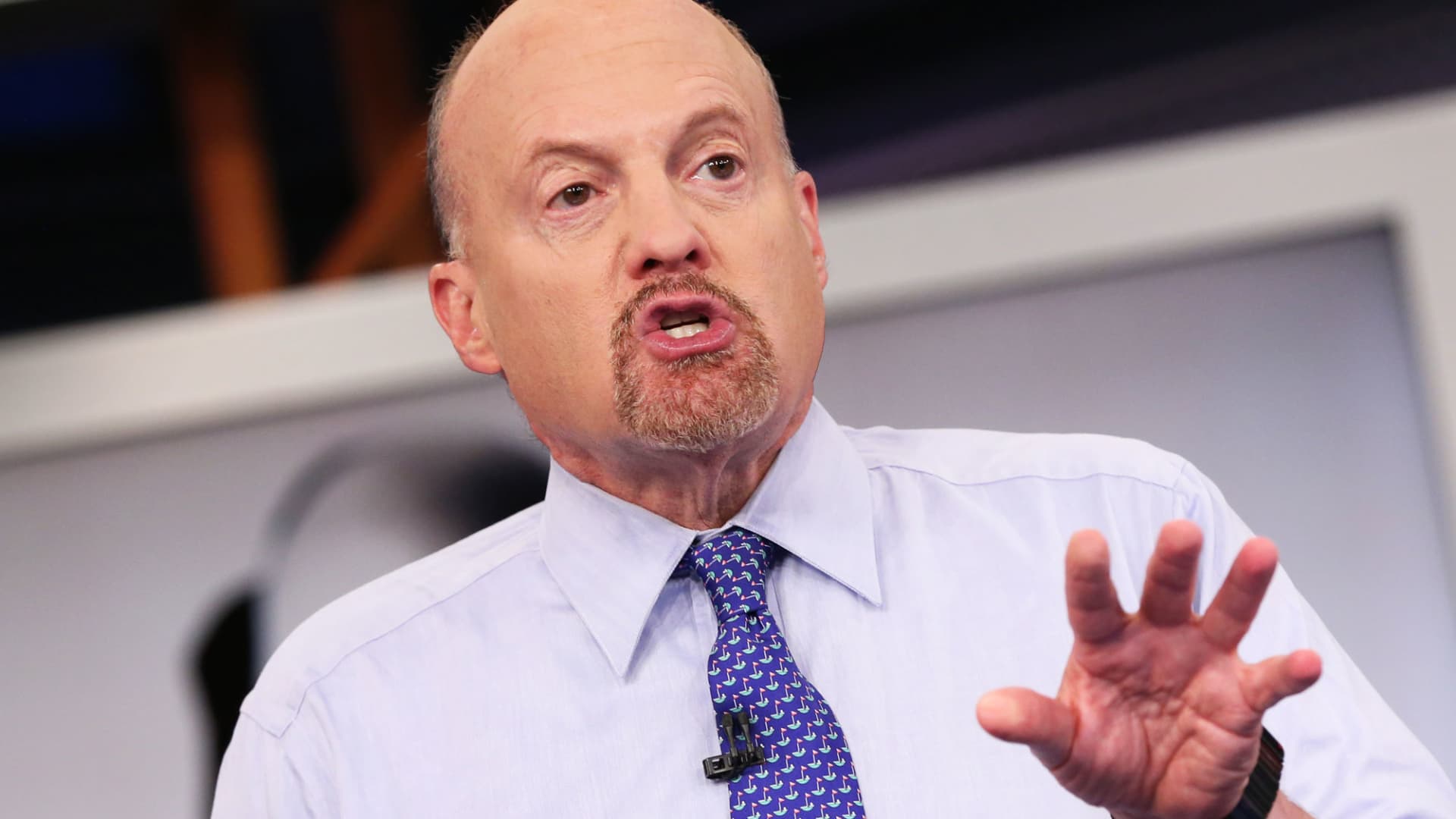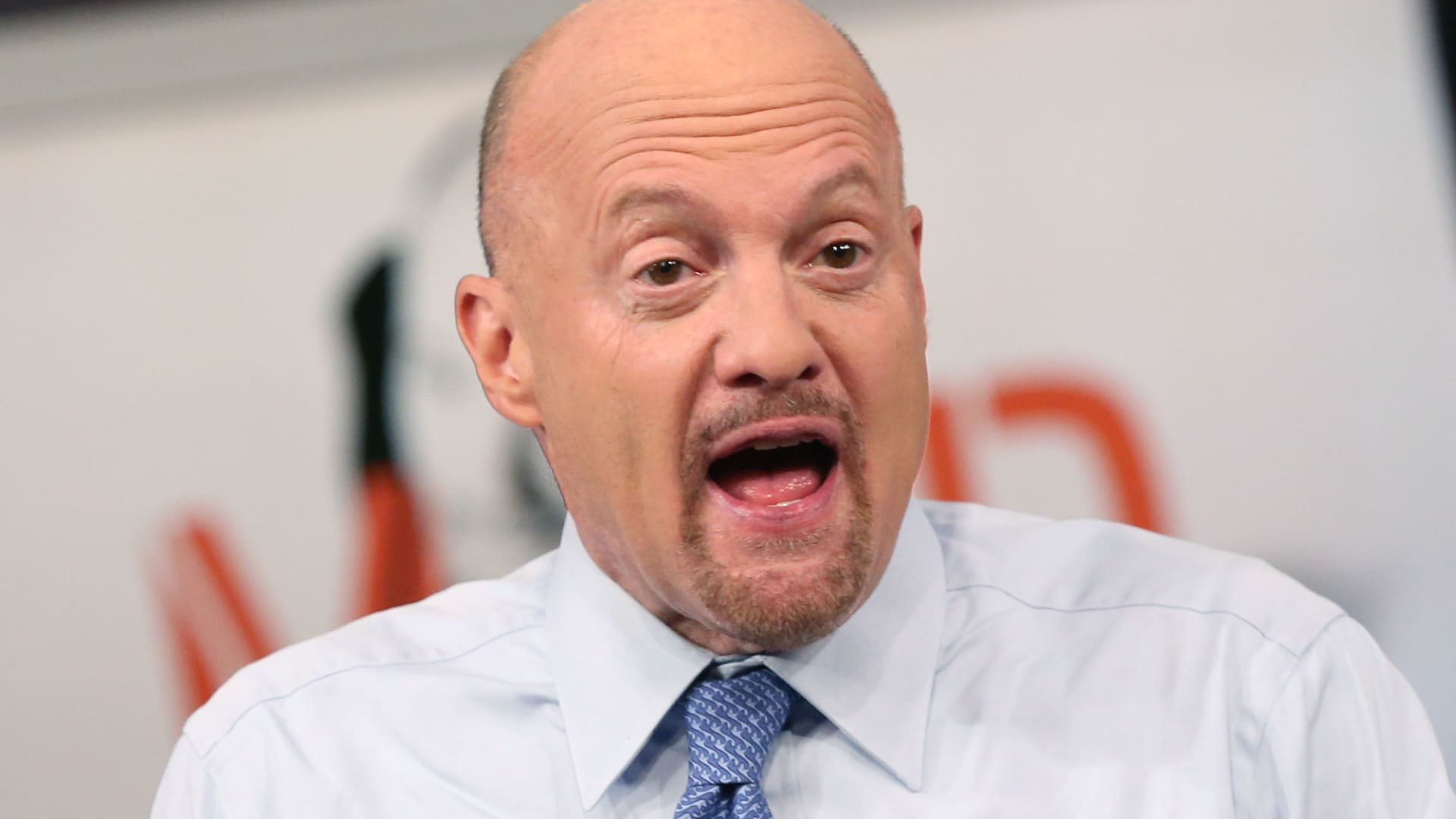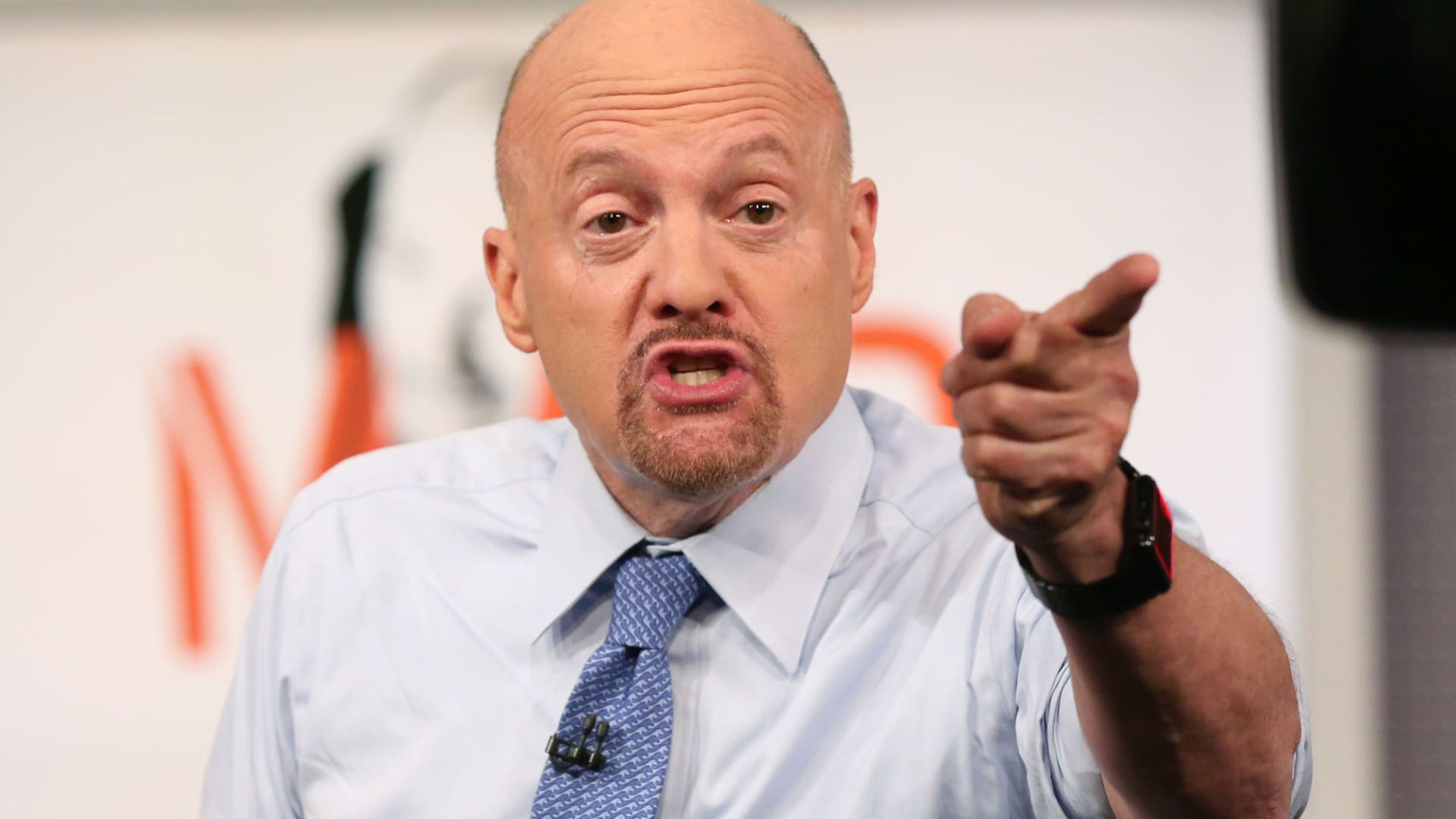Jim Cramer - A Look At The Media Personality
When folks think about money matters on television, one person often comes to mind, a lively character who shares his thoughts on how the markets are doing. This individual, a familiar face to many, has spent a good deal of time talking about financial happenings and what might be next for various companies. He has a way of presenting ideas that gets people paying attention, whether they are just starting to learn about investing or have been watching the ups and downs for quite some time.
He is, you know, a public figure who wears a few different hats. Beyond being a television personality, he has put his thoughts down in books for people to read, and he has also been involved in entertainment. Before all of this, he spent time managing money for others in a big way, which gives him a unique background when he talks about what is happening in the world of stocks and shares. It is that mix of experiences, actually, that makes his insights something many people tune in to hear.
His current work often involves giving opinions on market movements and what different companies are up to. He might, for example, express his belief in a certain big company even when its shares are not performing as well as some others. He also looks at how the overall market is behaving, sometimes pointing out when investors are shifting their money from one kind of business to another. This kind of commentary, pretty much, helps people get a sense of the broader picture.
- Images Marc Anthony
- Canadian Cancer Society Cervix
- Hometown Acres
- Dirt Juicery Green Bay
- Zobrist Design Group
Table of Contents
- Who is Jim Cramer? A Life Story
- What Makes Jim Cramer a Public Figure?
- What Insights Does Jim Cramer Share About the Market?
- Where Else Can You Find Jim Cramer's Work?
- A Look Back at Jim Cramer's Past
Who is Jim Cramer? A Life Story
James Joseph Cramer, a person many recognize from television, came into the world on February 10, 1955. His journey has taken him through various kinds of work, from managing large sums of money for others to becoming a well-known face on the screen. He is, in a way, a blend of different professional experiences, all of which seem to contribute to his distinctive style when he talks about money and business. His background as a former hedge fund manager means he has direct experience with the fast-paced world of financial dealings, which is something that, you know, gives his words a certain weight for some listeners.
Beyond his television presence, he has also put his thoughts and experiences into written works, making him an author whose books cover financial subjects. This means people can learn from his ideas even when they are not watching him on a screen. He is also considered an entertainer, which points to the lively and sometimes theatrical way he presents information. This approach, basically, helps to keep his audience engaged, making what could be dry financial talk more interesting and accessible to a wider group of people. He really does bring a lot of energy to what he does, which is pretty much his signature.
Personal Details of Jim Cramer
| Full Name | James Joseph Cramer |
| Date of Birth | February 10, 1955 |
| Primary Roles | Television Personality, Author, Entertainer, Former Hedge Fund Manager |
| Current Employer | CNBC |
| Key Programs | Mad Money, Squawk on the Street (ET hour), CNBC Investing Club |
What Makes Jim Cramer a Public Figure?
So, what exactly is it that has made Jim Cramer such a recognizable face and voice in the world of finance? A lot of it has to do with his regular appearances on television, where he speaks directly to a large audience about what is happening with money and investments. He has a way of communicating that seems to capture people's attention, perhaps because of his background as someone who used to manage money for big groups of people. This history gives him a particular viewpoint, which he then shares with viewers, often with a good deal of passion and conviction. It is, in some respects, his ability to translate complex financial ideas into something more digestible that draws people in.
- Shuckers Restaurant Miami
- Anthropologie Walt Whitman
- Alicia Smith Wxyz Age
- Your Dads Band
- Monique Meloche Gallery
His status as a public figure also comes from his willingness to offer advice and commentary on the stock market. People tune in to hear his opinions, hoping to get a sense of direction or to simply understand the current economic climate a bit better. He does not shy away from making calls or expressing strong beliefs about certain companies or market trends. This directness, really, is a big part of his appeal. He has built a reputation for being someone who has a lot to say about money, and he says it with a lot of vigor, which is why so many people know who he is.
Jim Cramer's Role on Television
Jim Cramer holds a central spot on CNBC, a channel known for its business and financial news. He is the host of a program called "Mad Money," which airs at 6 p.m. ET. In this role, he leads the discussion, guides the show, and presents his ideas about investing. Being a host means he is the main person listeners connect with, and he is responsible for keeping the show moving and interesting. He is also a presence on "Squawk on the Street," specifically during its ET hour, adding his insights to the morning financial conversations. This constant presence on a major financial news channel, you know, makes him a very familiar voice and face for many who follow the markets.
His work on television is not just about presenting facts; it also involves giving his personal views and suggestions on what people might do with their money. He offers advice on investments and provides commentary on the overall state of the stock market. This kind of guidance, very often, is what people are looking for when they watch his programs. He tries to make sense of the daily movements and broader patterns, offering his perspective on what they mean for ordinary people. It is this combination of information and opinion, pretty much, that defines his television persona and his contribution to the public discussion about money.
How Does Jim Cramer Talk About Money Matters?
When Jim Cramer talks about money matters, he does so in a way that is meant to be clear and direct, aiming to give people a better sense of what is happening. He provides investment advice, which means he offers suggestions on what stocks or other assets people might consider. He also gives commentary on the stock market, which involves sharing his thoughts and observations about why things are moving the way they are. His communication style, typically, is quite energetic, and he often uses straightforward language to explain what can sometimes be very complicated ideas. He tries to make financial discussions accessible to a broad group of people, whether they are experienced investors or just starting out.
He does not just present numbers; he tries to put them into context, explaining what they might mean for someone's money. For example, he will look at the daily happenings on Wall Street and offer his interpretation of what is going on. This might involve discussing why certain types of companies are gaining favor with investors while others are losing it. His approach, literally, is about breaking down the big picture into smaller, more understandable pieces, allowing his audience to grasp the underlying movements and shifts in the financial world. He aims to make sense of the financial news, which is a big part of what he does on his shows.
What Insights Does Jim Cramer Share About the Market?
Jim Cramer regularly shares his thoughts on the market's movements and what these might mean for people who put their money into various companies. He looks at the daily activities on Wall Street and tries to figure out the bigger picture from them. For instance, he might point out when the market seems to be having a kind of temporary bounce back, even if the general trend is still going in a different direction. This kind of observation, you know, is about helping people understand the short-term ups and downs that can happen within a larger market trend. He tries to give people a sense of the pulse of the market, which is a very important part of his role.
He also pays close attention to how investors are moving their money around. He might suggest that people are taking their money out of very large technology companies and putting it into other kinds of businesses. This idea of "rotation" is a common theme in his discussions, explaining how different parts of the economy might become more or less attractive to those who invest. His insights are, basically, about making sense of these shifts, helping his audience to see where the money is flowing and why. He aims to provide a clear view of these financial currents, which is something many people find helpful when thinking about their own money.
Jim Cramer's Thoughts on Specific Companies
When it comes to individual companies, Jim Cramer often voices his opinions, sometimes showing strong support for certain businesses even when their performance might not be as good as others. For example, he has made it clear that he continues to believe in a big technology company like Apple, even during times when its stock was not doing as well as the average company's shares. This kind of specific support, really, shows his conviction in certain businesses, regardless of their immediate market performance. He does not just talk about broad market trends; he also gets into the specifics of what he thinks about particular companies, which is something that many viewers look for.
His commentary on specific companies is a regular feature of his programs. He provides his views on why a company might be a good choice, or why it might be facing challenges. These discussions often include his reasons for holding onto a belief in a company, even when it is experiencing a period of slower growth or a drop in share value compared to others. He tries to explain the underlying strengths or weaknesses he sees in these businesses. This focus on individual companies, in a way, gives his audience concrete examples of his investment philosophy and how he applies it to real-world situations, which is quite useful for people trying to learn.
What Does Jim Cramer Say About Market Movements?
Jim Cramer often talks about the various movements happening in the stock market, trying to make sense of the daily ups and downs. He looks at how Wall Street performs on a given day and then shares his thoughts on what those actions might mean. For instance, he has suggested that the market might be experiencing what he calls a "countertrend rally." This means that, while the overall direction of the market might be going one way, there is a temporary period where it moves in the opposite direction, perhaps just for a short time. He tries to explain these kinds of specific market behaviors, which can be confusing for many people. His goal, pretty much, is to bring clarity to these often complex financial shifts.
He also discusses how investors are changing where they put their money. He has pointed out that people are moving their investments out of very large technology companies and putting them into other parts of the market. This kind of shift, where money flows from one sector to another, is a common theme in his market reviews. He tries to explain the reasons behind these changes, perhaps suggesting that certain industries are becoming more attractive to investors than others. His commentary, typically, aims to give his audience a better grasp of these larger economic currents and how they might affect different kinds of businesses, which is a very helpful thing for people who follow the markets.
Where Else Can You Find Jim Cramer's Work?
Beyond his well-known television show, "Mad Money," Jim Cramer is involved in other areas where people can find his work and ideas. He is, for example, a part of the CNBC Investing Club. This club is another way for him to share his thoughts and provide insights into the world of money management. It means that his reach extends beyond just his live television appearances, offering different avenues for people to connect with his perspectives. This kind of additional involvement, actually, allows him to give more detailed or specific guidance to those who are really keen on understanding his approach to putting money into companies. It is a way for him to share even more of what he knows and believes about the financial world.
He also contributes to other parts of CNBC's programming. As mentioned, he is a regular presence during the ET hour of "Squawk on the Street," which is a morning show that covers business and financial news. This means that people can hear his commentary at different times of the day, getting a broader sense of his views on the market as it unfolds. His work, therefore, is not limited to just one program but spans across several platforms within CNBC. This widespread presence, literally, makes him a constant voice for many who follow financial news, ensuring his ideas are heard by a wide and varied audience throughout the day.
A Look Back at Jim Cramer's Past
Before becoming the television personality and author many people know today, Jim Cramer had a significant career as a hedge fund manager. This part of his past means he spent time actively managing large amounts of money for others, making decisions about where to invest and when to pull back. It is this hands-on experience in the financial world that, in some respects, shapes his current commentary. He was directly involved in the buying and selling of shares, trying to make money from market movements. This background gives him a practical understanding of how the financial system works, which he then brings to his public discussions. His time as a fund manager, pretty much, provides a foundation for the advice and opinions he offers today.
His past work as a hedge fund manager is a key part of his story. It is where he gained a lot of the practical knowledge and insights that he now shares with his audience. This experience means he has seen the market from the inside, dealing with its daily challenges and opportunities. He was responsible for making important financial choices that affected many people's money. This previous role, you know, sets him apart from some other commentators who might not have had such direct involvement in managing large investment portfolios. It is a big reason why many people listen to what he has to say about the world of money and business, as he has been in the thick of it.
This article has presented a look at Jim Cramer, drawing from information that describes him as a television personality, author, entertainer, and former hedge fund manager. We covered his role as the host of "Mad Money" on CNBC and his involvement with the CNBC Investing Club and "Squawk on the Street." The discussion also touched upon his commentary regarding specific companies, like Apple, and his insights into broader market movements, such as countertrend rallies and investor rotation from big tech to other sectors. His background and current activities at CNBC were explored to provide a picture of his contributions to financial media.

104673557-IMG_5320-jim-cramer.jpg?v=1693522842&w=1920&h=1080

104572862-IMG_3282-jim-cramer.jpg?v=1693437305&w=1920&h=1080

Jim Cramer: 'borderline unstoppable' investment themes for end of 2021